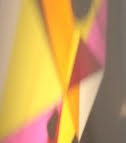francis ponge on the poem and the object...

"from now on, may nothing ever cause me to go back on my resolve: never sacrifice the object of my study in order to enhance some verbal turn discovered on the subject, nor piece together any such discoveries in a poem.
always go back to the object itself, to its raw quality, it's difference: particularly its difference from what i've (just then) written about it.
may my work be one of continual rectification of expression on behalf of the raw object (with no a priori concern about the form of that expression).
therefore, writing about the loire from a place along the banks of the river, i must constantly immerse my eyes and mind in it. any time they dry up over an expression, back they must go into the waters of the river.
recognize the greater right of the object, its inalienable right, in relation to any poem... no poem ever being free from absolute judgment a minima on the part of the poem's object, nor from accusation of counterfeit.
the object is always more important, more interesting, more capable (full of rights): it has no duty whatsoever toward me, it is who am obliged to it.
what the preceding lines do not adequately emphasize: consequently, never leave off at the poetic form - though it must be used at some point in my study because it produces a play of mirrors that can reveal persistently obscure aspects of the object. the reciprocal clash of words, the verbal analogies are one of the means for studying the object in depth.
never try to arrange things. objects and poems are irreconcilable.
the point is knowing whether you wish to make a poem or comprehend an object (in the hope that the mind wins out, comes up with something new on the subject). it is the second phase of this alternative that my taste (a violent taste for things, and for advances of the mind) leads me to choose without hesitation.
so my resolve has been reached...
after that i hardly care whether someone chooses to call the outcome a poem. as for me, the slightest hint of poetic droning simply reminds me that i'm slipping back onto the old merry-go-round and need to boot my way off."
francis ponge, banks of the loire, 1941, reprinted in mute objects of expression.
i realized as i was typing ponge's text into the computer, my interests are not only in the sharing of these things via this blog, but also an interest in the act itself of transcribing these texts onto (or into) the computer (and/or paper), and how it effects my reading of them. the act of re-writing (or typing) allows me a different kind of reading experience, moving across letters and words much more intimately in relation to their individual forms, for a second or third reading, and a slow walk upon the construction of language. i seem to comprehend or understand a text differently when i'm reading, than when i'm reading and writing at the same time. movement is fragmented and slowed in the latter case, usually revealing something i'd missed during the initial rolling down a hill with my eyes closed... lately i've felt the need to read things twice, once in a simple singular flow, and once mining the words and the forms to dig deeper. it's not exactly a decision, as it is for the writer, to "comprehend the object" or to "make a poem"; but to comprehend also the poem or writing as an object, and to find within the text that "play of mirrors that can reveal persistently obscure aspects of the object" - in this case the object being the poem itself.
Labels: francis ponge, object, poem


